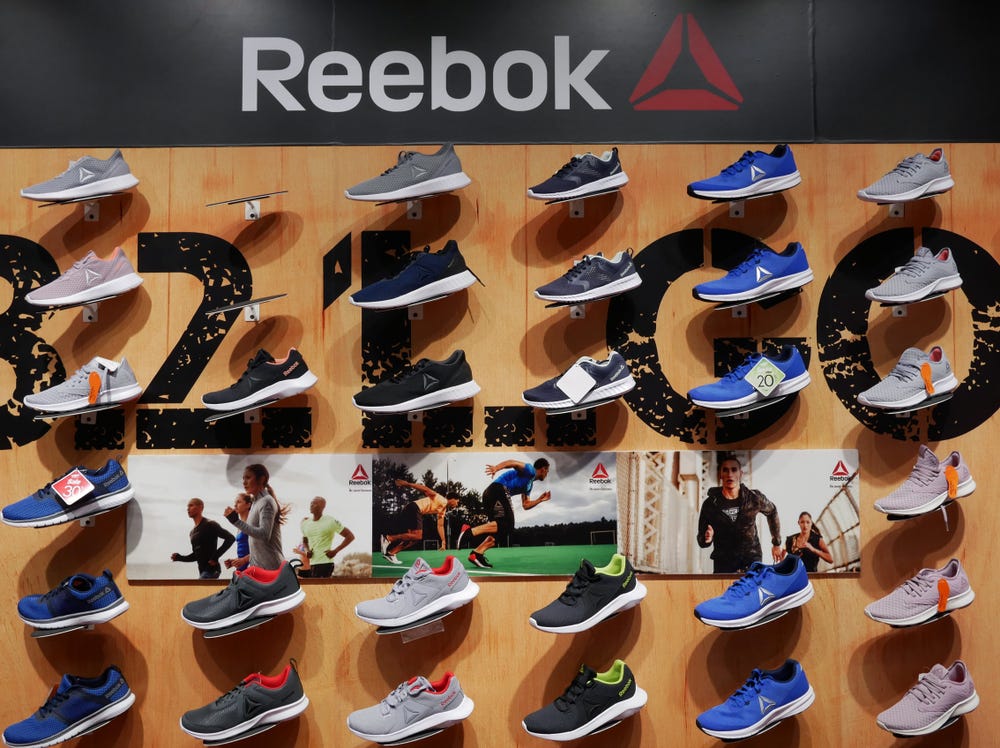Brand Film Highlights for the Year of the Ox
Plus: Alibaba's big European push, e-commerce history in the making, and a Chinese-owned Reebok?
Published three times per week, the Content Commerce Insider newsletter highlights how brands create content to drive revenue, globally. If you have received our newsletter from a friend or colleague, we hope you will subscribe as well and follow us on LinkedIn and Instagram.
Releasing short films for the Spring Festival is a tried and tested way for brands to connect with Chinese consumers in celebrating the country’s biggest holiday, and this year’s relatively long lead-up to the Lunar New Year, which began on February 12, gave rise to a flurry of notable creative efforts in the genre.
CCI presents its annual selection of some of the most talked-about brand films celebrating the Year of the Ox (including highlights from our previous brand film picks). While family gatherings and heartwarming reunions are mainstays of the Lunar New Year films, this year some brands acknowledged the fact that holiday travel would be curtailed and emphasized other ways to highlight family dynamics and intergenerational relationships, while others focused on humor or blockbuster-style filmmaking to keep audiences entertained.
Alipay: Expectation (望)
While the Spring Festival period is known as the world’s largest annual human migration, with hundreds of millions of Chinese returning to their hometowns, this year an uptick in reported cases of Covid-19 around the country spurred authorities to call on citizens to cancel their travel plans and stay put, an especially tough call for migrant workers and others who only get to see their families once a year for the big holiday.
A number of brands appeared to take note of the challenging circumstances surrounding what is typically a time for family reunions by speaking directly to consumers in the language of resilience and hope. Alipay’s “Expectation” (望) exaggerates the sense of distance that some may feel this year by showing a father attempting to get in touch with his astronaut son, with the well-liked actors Zhu Peiqi and Jin Shijia in the starring roles. The film shows that even in the enormous gap between rural China and the nation’s advanced space missions, the threads of family and tradition (enhanced by technology) still bind people together.
Apple: “Nian” (阿年)
Apple tapped Lulu Wang to remotely direct its fourth annual “shot on iPhone” Spring Festival film. “Nian” (阿年) reimagines a traditional holiday folk tale as a coming-of-age story about facing one’s fears. An inquisitive young girl sets out into the woods to find the mythical creature known as the “nian” (年, Chinese for “year”), who is said to eat children. Instead, she befriends the fearsome monster, allowing it to become a part of her family.
At 12 minutes, “Nian” is the longest of Apple’s holiday offerings to date, reveling in the lush scenery of forests and mountains. And as with previous films, the iPhone brand is mentioned only via a note in the opening credits (“Shot on iPhone 12 Pro Max”), signaling to viewers the professional movie-making capabilities of the device and setting the stage to send a strong brand message.
Burberry: “A New Awakening” (心春由你)
Burberry’s brand film stars celebrity ambassador Zhou Dongyu and actor Song Weilong, and was helmed by Derek Tsang, who directed Zhou in her award-winning turn in 2019’s youth drama “Better Days” (少年的你). The film celebrates the concept of spring as a time of renewal and emergence, focusing heavily on the wonders of the natural world. Burberry brand placement is subtle and quietly integrated into the outdoorsy environment of the film, echoing a recent short film campaign that featured three Burberry-clad Chinese indie drummers playing in forest settings.
Loewe: Traditional Heritage Series
Highlighting the traditional crafts of Feng Xiang woodblock prints from Shaanxi Province in the north, Yuting cakes from Guangdong in the south, and Daoming woven bamboo from Sichuan in the southwest, Spanish luxury brand Loewe’s series offers a glimpse into the lives of families dedicated to preserving these ancient skills and techniques for future generations.
Each film closes with the line, “Supporting Craft Since 1846,” establishing a parallel between the brand’s history and rich traditions of the families profiled. Without ever showing a single Loewe product (only the occasional logo), the brand ties these stories to Loewe’s stated focus on craftsmanship and heritage, succeeding in striking the right emotional tone that sets successful brand films apart from glorified advertisements.
Pepsi: “Bringing Happiness Home” (把乐带回家)
Since 2012, beverage giant Pepsi has run a recurring Lunar New Year marketing campaign called “Bringing Happiness Home,” incorporating productions with A-list celebrities that creatively align the traditional holiday narratives of family gatherings with Pepsi products. This year, Pepsi partnered with the Alibaba-owned Ele.me to boost the impact of its campaign, inviting popular actor Pan Yueming to produce and star in a short film for the two brands. Integrating Pepsi products with the now-heroic character of an Ele.me delivery worker, whose dedication to the job includes working on the eve of the Lunar New Year, the film is a heartwarming family story that puts a new spin on the concept of bringing happiness home.
Both the packaging of Pepsi’s signature beverage and the Ele.me worker’s uniform and helmet are in shades of blue, lending a strong visual element to the partnership as well. An accompanying mobile game in which users can play to send cans of Pepsi to real-world Ele.me workers, who are known as “blue knights.”
Three Kingdoms Tactics: “River Flow” (川流)
Ahead of the release of a new edition of the popular game “Three Kingdoms Tactics” on February 6, a 30-minute blockbuster was released to promote its debut. Directed by acclaimed brand film director Zhang Dapeng, the film reinterprets a historic battle from the perspective of a soldier in General Cao Cao’s army. It’s an entertaining and humorous unofficial history with echoes of Quentin Tarantino in its use of dialogue, violence, and music throughout the narrative.
While the film doesn’t have an obvious link to the typical themes of Spring Festival storytelling, it can be seen as a “gift” of sorts to fans, inviting them to create their own legendary stories while playing “Three Kingdoms Tactics” during the long Lunar New Year holiday.
Xiaohongshu: “Cook a Meal for Loved Ones” (为爱的人, 做顿饭)
While Xiaohongshu (aka Little Red Book) is best known as a fashion and beauty platform that mashes up elements of Instagram and Pinterest with e-commerce, the year 2020 saw food content take over, fueled by the coronavirus lockdowns during the first half of the year. There are more than 20 million cooking-related notes on Xiaohongshu, with “happiness” and “family” among the most mentioned words appearing in them.
Xiaohongshu took note of these trends for its Spring Festival offering, adapting three real-life cooking stories into a short film that it dedicated to all those who spent time in the kitchen over the past year.
Mentioned in today’s newsletter: Adidas, Alibaba, Alipay, Amazon, Anta Sports, Apple, Arc’teryx, Authentic Brands Group, Burberry, Bytedance, Cainiao, Douyin, H&M, Ikea, Kuaishou, Reebok, Salomon, Supreme, The North Face, VF Corp, Vans, Xiaohongshu.
CCI Take: Alibaba Seeks to Open a Path Into the European Market
by Avery Booker
China’s e-commerce giants are making gradual progress in established markets like Europe, expanding westward via targeted deals and consumer-led marketing that could threaten the dominance of Amazon and local players. While Alibaba is better known in Europe for the low-priced items offered on the AliExpress marketplace (rather than the official brand storefronts found on Tmall and its Luxury Pavillion in China, or the full-featured e-commerce livestreaming opportunities available on Taobao Live), the company is making a concerted effort to establish a permanent foothold in the market.
Since 2018, Alibaba has been growing its base in Liège, Belgium’s third-largest city, and the Covid-19 pandemic fueled greater efforts in the regions. According to The Guardian, Alibaba’s logistics subsidiary Cainiao is building a 355,000-square-foot cargo facility in southeast Belgium as part of a $361 million investment, and Alibaba previously partnered with Chinese state-owned enterprise ZIH to establish a 5,600-mile rail link between Liège and Zhengzhou in central China.
Alibaba’s choice of Belgium as a hub for its European expansion got its start on a personal note, with the country’s king actively courting Jack Ma. The Belgium connection fits with the company’s plan to both tap consumers in wealthier countries and provide, as The Guardian put it, “a whole new array of services not offered by Alibaba’s U.S. rival.”
The move also aids in the creation of a two-way street to give AliExpress merchants greater (and quicker) access to European consumers while encouraging more European merchants to take advantage of Alibaba platforms to reach and sell to Chinese consumers.
Yet for all of the potential, challenges remain — including protests from locals concerned over increased air pollution, road congestion, and overnight air traffic. For Alibaba, market access is one part of the equation, but the other, and more important part is drawing market share from the likes of Amazon.
In addition to building a Belgian logistics hub, Alibaba is using Spain as a sort of testbed to compete with its American rival and make its AliExpress marketplace a household name in Europe. The company launched a localized version of AliExpress in 2019, and amped up its promotion of the platform last year greater with a major plan to get tens of thousands of Spanish retailers on board. However, the platform still remains best known in Spain as a place to scour for low-priced items, indicating Alibaba faces an uphill battle if it wants AliExpress to go upmarket in Spain.
Read the full story on Content Commerce Insider.
An Anta-Owned Reebok Could Be Big for Fitness in China
Adidas has confirmed plans to sell off U.S. fitness brand Reebok, which it purchased in 2006, as part of the German sportswear giant’s new five-year strategy (to be released in full on March 10). The Reebok acquisition was intended to expand the Adidas footprint in North America and boost its ability to compete against Nike, but it’s been a losing proposition — According to CNN, Reebok currently accounts for just 7% of Adidas’ sales, down from roughly 18% in 2010.
Despite improvements in recent years marked by endorsement deals with mega-celebrities Cardi B and Ariana Grande, Reebok was hit hard by the Covid-19 pandemic, closing stores and failing to leverage rising demand for athletic and athleisure apparel as rival Nike did by doubling down on digital content to reach housebound consumers. The brand reported a 7% year-on-year drop in revenue in the third quarter of 2020, compared to a 2% decline for Adidas. For its part, Adidas says its current primary focus is on its core brand.
Potential buyers for Reebok reportedly include VF Corp (owner of Vans, The North Face, and Supreme) and Authentic Brands Group, but China’s Anta Sports could emerge as a likely frontrunner.
Anta Sports has been on a roll in recent years, and in 2019 it became the world’s third-largest sportswear company by revenue. In a notable deal, a consortium led by Anta acquired Finland-based Amer Sports, owner of an impressive portfolio of premium outdoors and winter sports brands that include Salomon and Arc’teryx, and recently installed Anta executive James Zheng as CEO, which can help to boost the profile of Amer brand’s in China.
While Anta has moved to position itself in professional sports with sponsorships of athletes like Rajon Rondo and Klay Thompson, and has a clear presence in outdoor and winter sports gear via Amer Sports, it has yet to make major strides in the trendy sportswear and athleisure markets. With China experiencing an explosion of interest in fitness that was accelerated by the coronavirus pandemic, an Anta purchase of Reebok would make complete sense (although it wouldn’t be cheap).
For Reebok, an Anta buyout would offer benefits such as investment by Anta into expanding the company’s retail footprint in China and a beefed-up e-commerce infrastructure. While still a longshot, an Anta-owned Reebok could very well chip away at the fitness and sports dominance of Nike and even Adidas, which would be an interesting turn of events.
Brand Collab Pick: Ikea x Rog
Taking a “China-first” approach to product innovation, Ikea recently debuted its hotly anticipated collaboration with Asus Republic of Gamers (ROG) on a new range of affordable gaming furniture and accessories. The jointly designed Uppspel family of products was launched in China this month, but will not reach the rest of the world until later this year, highlighting the importance of the Chinese market and its estimated 720 million gamers.
The black-and-red collection includes a sleek high-backed gaming chair priced at RMB 999 ($155), an adjustable table that can be used as a standing desk (with a more premium price point of RMB 3,999, or around $620), and a wall-mounted pegboard to keep gaming equipment organized. Ikea is also introducing a series of self-designed items that will be useful for gamers, like a headphone stand, cupholder, and floor mat. The partnership between two global brands has drawn attention around the world, with many would-be buyers lamenting the fact that they will have to wait to get a piece of the action.
News From China
E-commerce history in the making. A new report from eMarketer projects 52.1% of Chinese retail sales will come from e-commerce in 2021, up from 44.8% last year.
This would mark the first time in any market in the world that a majority of retail transactions take place online. With 80% of consumers having made purchases online, China far outpaces the rest of the world when it comes to e-commerce: the next closest country, South Korea, is forecast at close to 30% of retail sales via e-commerce, while online will account for just 15% of retail in the United States and just under 13% in Europe.
Social media helps drive China’s e-commerce revolution, and that sector continues to show strong growth. According to a report by TradingPlatforms.com, China will have 1.1 billion social media users by 2025, an increase of 19% from 2020, and leading platforms such as WeChat, Douyin and Kuaishou are investing heavily into becoming one-stop shops for entertainment and shopping.
Douyin reveals video search stats: Bytedance China CEO Kelly Zhang said that more than 550 million monthly active users (MAUs) are using the app’s innovative video search feature (the first time the company shared such data) and that the platform plans to increase its investment in search.
Earlier this year, Douyin’s 2020 annual report noted that the average daily video search volume is 400 million. “Over the past few years, social expression and creation have become video-based. And search, as the most direct way to obtain information, has also become video-based,” said Zhang.
China’s holiday box-office streak continues, with five consecutive days of ticket sales exceeding RMB 1 billion ($155 million) and total box office for the year surpassing RMB 10 billion ($1.55 billion). Hong Kong-listed shares of movie and entertainment firms saw a big spike on the first day of trading in the Year of the Ox, led by Alibaba Pictures (20%), Maoyan Entertainment (14.7%), and IMAX China (14.2%).
More movie industry history: Comedian Jia Ling became China’s top-grossing female director of all time with her mother-daughter comedy “Hi, Mom” (你好,李焕英), which has earned more than RMB 2 billion ($310 million) since its February 12 debut. The release of “Hi, Mom” on the highly competitive first day of the Lunar New Year marked the first time a female-helmed film premiered on that coveted date.
In another win for female-focused content in China, “Hi, Mom” is the first non-animated Spring Festival release to star women in the top roles, and has spawned several viral trends on social media celebrating mothers. At this rate, “Hi, Mom” could even take the crown from “Chinatown Detective 3” (唐人街探案3) as the top-grossing film of this year’s Lunar New Year holiday period.
News in English
WeChat’s challenges in competing with Douyin in China on the video front could serve as a preview of what lies ahead for Facebook and Google in countering TikTok’s global popularity. The Information
Brand marketers and share their strategies for effective messaging for the Lunar New Year holiday during a pandemic. The Drum
Netease is joining China’s video wars with its investment to support creators, although its chances of competing against bigger rivals like Douyin and Kuaishou are slim. SCMP
Despite a recent deal with Chinese record label producer Taihe Music, the indie music streaming platform Bandcamp appears to be blocked in China. Radii
The Biden administration looks to be walking back from tech decoupling and more towards a “small yard, high fence” approach. Caixin
Meanwhile, Japan has not followed Washington’s lead and its companies remain bullish on China. Financial Times
China’s Gen Z consumers now account for 17% of the population and 25% of total spending on new brands, according to L Catterton’s latest consumer insights report. CNBC
A mini-documentary review of Lunar New Year traditions in China, their evolution, and how brands can leverage the festival to holiday to reach consumers. Dao Insights
AI companies figure prominently in the list of Chinese tech IPOs to watch in 2021. Protocol
With more than 120 million followers apiece, the reality TV show hosts Xie Na and He Jiong lead the list of the ten most popular celebrities on Weibo. What’s on Weibo
We’ve Got China Covered
China Film Insider: Lunar New Year Gala Targets a Familiar Group: Unmarried Millennials
Jing Daily: The Next Frontier: Selling Luxury Through Virtual Love Partners?
Jing Culture & Commerce: Inside the Natural History Museum’s Successful Digital Pivot








